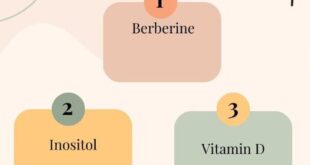As pet parents, our primary objective should be providing our four-legged friends with only the finest food, snacks and supplements so they may live happy, healthy lives. A popular health product among humans has become nutritional yeast; but is its safety relevant when considering four-legged companions as well? What other advantages does nutritional yeast hold over other options for four-legged?
Here, we will go over everything you need to know about feeding nutritional yeast to your dog – its possible advantages and precautions, how wet feed works… so get ready! Let’s dive right in!
What Is Nutritional Yeast?
Nutritional yeast is a deactivated form of yeast widely used as a seasoning or supplement in human diets, known for its distinctive cheesy, nutty taste which pairs nicely with plant-based meals. Nutritional yeast also provides essential B-vitamin requirements (especially B12) via its protein fiber and antioxidant content, making it suitable for vegan and vegetarian diets as a plant source of essential B-vitamin needs that would otherwise come exclusively from animal products.
SEE MORE: https://healthybodyboost.net/wp-admin/post.php?post=2073&action=edit

Do Dogs Eat Nutritional Yeast?
To answer this question in an affirmative manner: Yes. Nutritional yeast may be added into their meals in moderation as part of a balanced diet for their dogs; however, before doing so it’s essential that their potential benefits and risks are fully considered first.
Nutritional Yeast for Dogs
Packed With Nutrients: Nutritional yeast provides your pup with essential B-vitamin, protein and fiber nutrients – benefitting his overall health in many ways! B-vitamins support his coat, skin and immune function; protein contributes muscle maintenance while fiber aids digestion.
Support for Shiny Coat and Healthy Skin: If the coat of your dog appears dull or dry, nutritional yeast could provide essential assistance by harnessing biotin’s essential B vitamin status as a supporter of shiny coat and reduced irritation in its form of biotin supplements.
Nutritional yeast’s fiber-rich composition may aid your pet’s digestive health by helping prevent constipation or diarrhea while stimulating beneficial bacteria populations in his gut flora – it might even promote overall improved gut health!
Nutritional yeast’s rich antioxidant content has proven especially useful when applied to strengthening your dog’s immunity system – this approach may prove particularly advantageous when dealing with older or sickly pets who lack healthy defense mechanisms.
Nutritional yeast offers an irresistibly delectable cheese-and-savory combination that many dogs find irresistible, encouraging picky eaters to finish their meals more readily. Even adding just a pinch to food might encourage it!

Before Giving Your Dog Nutritional Yeast
Nutritional yeast offers many health advantages for your pup; however, adding nutritional yeast into their diet requires special consideration and forethought. Here are a few key points you need to remember before dosing them with it.
Moderation Is Essential When Administering Nutritional Yeast Supplements to Dogs: As is true with any supplement, moderation is of utmost importance when administering nutritional yeast supplements to dogs. Too much nutritional yeast could result in digestive distress such as bloat, gas or diarrhea in canines; so start slowly while monitoring for any adverse reactions; if discomfort surfaces reduce the dosage or stop altogether.
Watch Out For Allergic or Sensitivities in Pets: Dogs may become sensitive to yeast products that contain nutritional yeast ingredients; be on the lookout for signs such as itching, swelling and digestive upset that could indicate allergies in their pets.
Avoid Additives:
Not all nutritional yeast products are the same; some could include ingredients like garlic powder and onion powder that could prove toxic or hazardous for dogs. When selecting nutritional yeast products to ensure the wellbeing of your pup, always opt for plain, unseasoned varieties.
Health Considerations for Dogs with Purine-Related Issues: For dogs who suffer from kidney disease or purine-related problems, consulting their vet before including nutritional yeast as part of their diet could be in their best interests as nutritional yeast contains purines that could aggravate certain medical issues further.
Are You Wondering How to Give Nutritional Yeast to Your Dog Looking To Incorporating Nutritional Yeast Into Your Dog’s Diet For anyone ready to introduce nutritional yeast as part of their canine’s food regime, here are a few easy and safe solutions:
Sprinkle On Food: One easy and efficient method of giving nutritional yeast to your canine friend is simply sprinkle some on their regular food bowl – providing both flavor and nutrition benefits at once! This provides fast service.
Nutritional Yeast Can Be Incorporated in Homemade Dog Treats: Nutritional yeast can also be added in moderation into homemade pet treats and food toppers to achieve the best possible outcomes.
Nutritional yeast can make for an enriching and tasty addition to any dog diet when used correctly and responsibly, offering numerous health and beauty advantages – improved digestion, shiny coat, increased immune function. Dose the yeast slowly so as not to trigger sensitivities or allergies from sensitizers or allergens and always opt for plain unseasoned nutritional yeast when adding it into their daily feeding schedule; for any questions about its use contact your vet first before proceeding further with its introduction into their meals.
Keep in mind nutritional yeast should never replace complete and well-balanced dog food; rather it should always be administered according to specific safety protocols in order to provide your beloved pup with all its benefits safely. By paying special attention when feeding this nutrient-rich treat, ensure they receive their healthful benefits!



